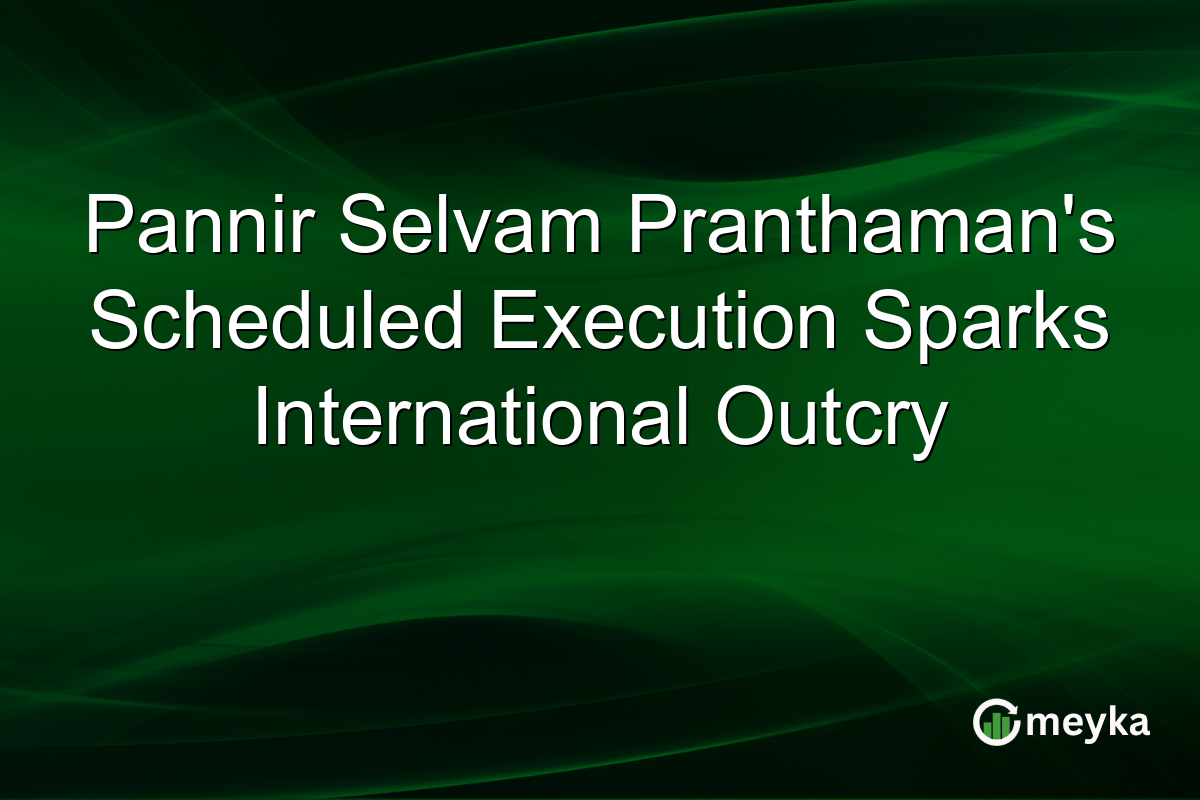Pannir Selvam Pranthaman’s Scheduled Execution Sparks International Outcry
The impending execution of Malaysian national Pannir Selvam Pranthaman in Singapore has stirred international debate. Pannir, accused of being a Malaysian drug trafficker, faces the death penalty, a sentence that draws substantial criticism from human rights groups. This situation sheds light on the contentious use of capital punishment for drug-related crimes in Singapore.
The Case of Pannir Selvam Pranthaman
Pannir Selvam Pranthaman was arrested in 2017 for attempting to traffic heroin into Singapore. His conviction and sentence to death highlight Singapore’s strict drug laws. Despite appeals by his family and advocacy groups, Singapore’s courts upheld the verdict. Recent news illustrates that the execution is set for October 8, 2025. The case has drawn global attention, questioning the fairness and ethical implications of the punishment.
International Reaction and Human Rights Concerns
Global human rights organizations, including Amnesty International, have voiced strong opposition. They argue that the death penalty is a violation of human rights and advocate for its abolition. The execution has led to international appeals urging the Singaporean government to halt the proceedings. Critics point to issues of fairness in trials and argue that capital punishment may not effectively deter drug trafficking. Read more on Amnesty International’s stance on the issue here.
Singapore’s Stand on the Death Penalty
Singapore maintains that its tough stance on drug crimes is essential for public safety. The city-state has some of the strictest anti-drug laws globally, arguing that the death penalty serves as an integral deterrent. However, this case reignites debates on its necessity and effectiveness, with many questioning if such measures should continue in a modern judicial system. The divide between local policy and international opinion is stark, emphasizing the ongoing tension around capital punishment.
Final Thoughts
Pannir Selvam Pranthaman’s case continues to spotlight the global contention surrounding the use of the death penalty in drug-related offenses. While Singapore asserts its anti-drug policies as crucial, the international community calls for a reevaluation. This conflict between domestic law and global human rights standards sets a precedent for future discussions. The case highlights the broader implications for countries with similar laws, urging a balance between justice and human rights.
FAQs
Pannir Selvam Pranthaman is set to be executed for attempting to traffic heroin into Singapore, reflecting the country’s strict drug laws which mandate the death penalty for such offenses.
Human rights organizations have criticized the execution, urging Singapore to abolish the death penalty. They argue it violates human rights and call for legal reforms.
Singapore defends its harsh penalties, including the death penalty, as necessary deterrents to keep the country safe from drug-related issues and maintain public order.
Disclaimer:
This is for information only, not financial advice. Always do your research.






